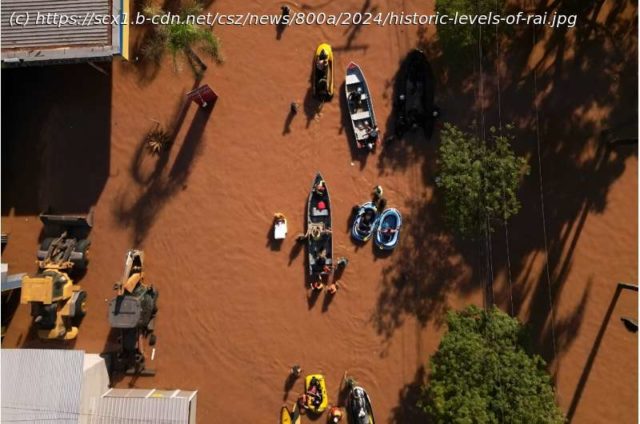The climate catastrophe that has struck southern Brazil, killing more than a hundred people and displacing nearly two million, has also spawned a spate of bizarre conspiracy theories, some involving jets’ vapor trails and weather antennas in faraway Alaska.
The climate catastrophe that has struck southern Brazil, killing more than a hundred people and displacing nearly two million, has also spawned a spate of bizarre conspiracy theories, some involving jets’ vapor trails and weather antennas in faraway Alaska.
As often happens at times of disaster and great uncertainty, several of these theories have gone viral on social media.
“What’s happening in Rio Grande do Sul is definitely not natural,” one woman said on the platform known as X. “Let’s open our eyes!”
She blamed something called HAARP—the High-frequency Active Auroral Research Program—a US project that studies the ionosphere using huge antennas in Alaska.
Other people have posted images of airplanes crisscrossing the skies over Brazil’s hard-hit state of Rio Grande do Sul, saying the trails of condensation left by jets contain toxic chemicals as part of a secret and nefarious governmental program.
Taken together, the theories paint an ominous picture that somehow denies climate change while blaming governments and scientific institutions that supposedly are orchestrating “planned tragedies” for murky motives.
These theories ignore the overwhelming scientific consensus that climate change is almost certainly behind a global increase in extreme weather events.
Carlos Nobre, who heads Brazil’s National Institute of Science and Technology for Climate Change (INCT), listed what scientists believe is behind the disastrous rainfalls of late: a low-pressure system has been blocked by a high-pressure system in the center-west and southeast of the country, causing cold fronts to linger over the region even as water vapor coming flowing in from the Amazon contributed to historic levels of rainfall.






